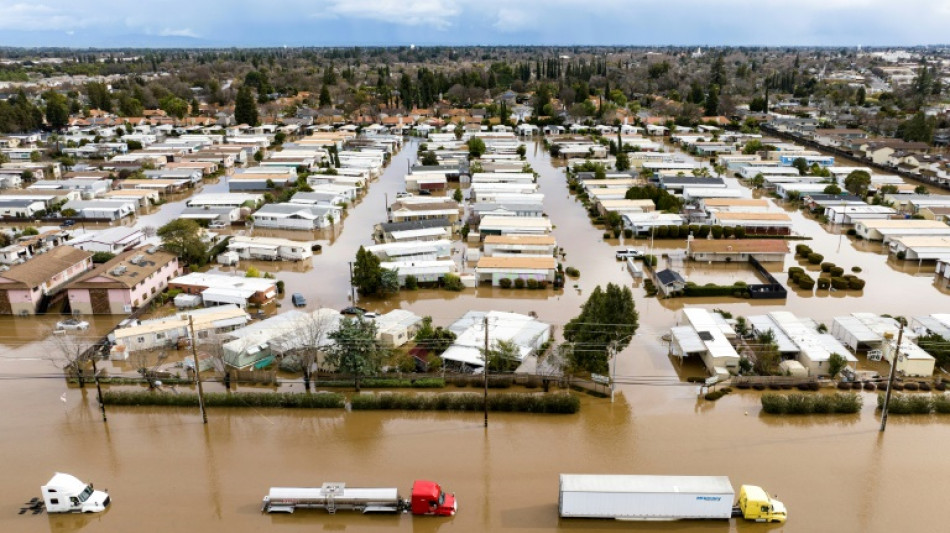
-
 Aussie cycling star Ewan announces shock retirement
Aussie cycling star Ewan announces shock retirement
-
Blow for Germany's Merz as he loses first-round vote for chancellor

-
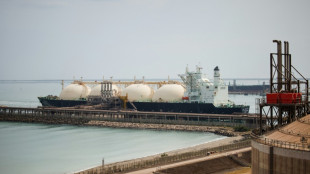 EU to lay out plan to cut last Russian gas supplies
EU to lay out plan to cut last Russian gas supplies
-
Food delivery app DoorDash agrees to buy peer Deliveroo
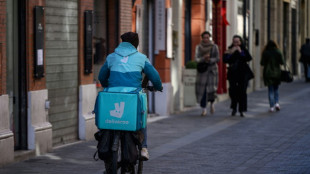
-
 Zhao's world championship win will take snooker to 'another level': sport's chief
Zhao's world championship win will take snooker to 'another level': sport's chief
-
Ukraine fires drones on Moscow days before Red Square parade
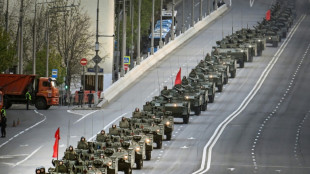
-
 Blow for Merz as he misses majority in first vote for chancellor
Blow for Merz as he misses majority in first vote for chancellor
-
Putin gears up for 'grandest' Victory Day amid Ukraine conflict

-
 Cardinals to move into Vatican on eve of conclave
Cardinals to move into Vatican on eve of conclave
-
Romania names interim premier as turmoil deepens

-
 DoorDash agrees £2.9 billion takeover of Deliveroo
DoorDash agrees £2.9 billion takeover of Deliveroo
-
Dollar recovers some losses, stocks mixed as traders eye tariff deals

-
 Hamas says no point in further Gaza truce talks
Hamas says no point in further Gaza truce talks
-
'Aussiewood' courts Hollywood as Trump film tariffs loom

-
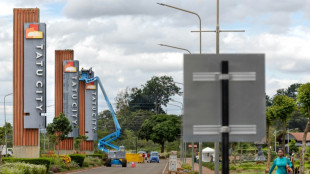 How a privately owned city in Kenya took on corrupt officials
How a privately owned city in Kenya took on corrupt officials
-
Ozempic slimming craze sweeps Kosovo despite side effects

-
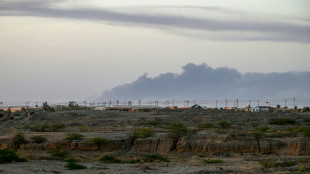 Drone strikes rock Port Sudan in third day of attacks
Drone strikes rock Port Sudan in third day of attacks
-
US President Trump and Canada's Carney set for high-stakes meeting

-
 Philips turns in a profit but China, tariffs weigh
Philips turns in a profit but China, tariffs weigh
-
Drones hit Port Sudan airport in third day of attacks
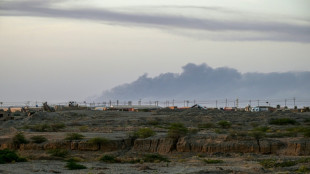
-
 Australian mushroom murder suspect rejected help preparing meal: witness
Australian mushroom murder suspect rejected help preparing meal: witness
-
Jokic-inspired Nuggets stun Thunder, Knicks down Celtics

-
 India's woman fighter pilot trailblazer eyes space
India's woman fighter pilot trailblazer eyes space
-
'Shared dream': China celebrates Zhao's world snooker breakthrough

-
 Wait for Vatican white smoke fires up social media
Wait for Vatican white smoke fires up social media
-
Sinner leading the charge in golden era for Italian tennis

-
 Donnarumma stands tall on PSG's Champions League run
Donnarumma stands tall on PSG's Champions League run
-
Dollar recovers some losses, stocks gain as traders eye tariff deals

-
 US aid cuts push Bangladesh's health sector to the edge
US aid cuts push Bangladesh's health sector to the edge
-
Prayers, pride in Philippine papal contender's hometown

-
 Germany's Merz to launch new govt in times of Trump turbulence
Germany's Merz to launch new govt in times of Trump turbulence
-
Brunson sparks Knicks in comeback win over Celtics

-
 All roads lead to Rome Open for Sinner after doping ban
All roads lead to Rome Open for Sinner after doping ban
-
French Resistance members reunited 80 years after end of WWII

-
 Arsenal must 'stick together' in PSG showdown: Odegaard
Arsenal must 'stick together' in PSG showdown: Odegaard
-
New Zealand PM proposes banning under-16s from social media

-
 MainStreetChamber Holdings and Tellus Ecolution Launch MSC Wellness Builders, Elevating Isotex Wood-Cement Blocks as the Future of Fire-Resistant and Sustainable Construction
MainStreetChamber Holdings and Tellus Ecolution Launch MSC Wellness Builders, Elevating Isotex Wood-Cement Blocks as the Future of Fire-Resistant and Sustainable Construction
-
Camino Announces Exploration Results at Los Chapitos and Further Exploration Plans in Peru

-
 Ryde Reaffirms Commitment to Gig Workers at NTUC May Day Rally, Supporting Inclusive Growth and Fair Work Practices
Ryde Reaffirms Commitment to Gig Workers at NTUC May Day Rally, Supporting Inclusive Growth and Fair Work Practices
-
OMP Achieves Top Two Rankings in Four Use Cases in the 2025 Gartner Critical Capabilities for Supply Chain Planning Solutions Report

-
 Boditech Med and SphingoTec Announce Launch of AFIAS penKid(R) Assay for Kidney Function Diagnostics
Boditech Med and SphingoTec Announce Launch of AFIAS penKid(R) Assay for Kidney Function Diagnostics
-
Agronomics Limited - Meatable and TruMeat Forge Alliance

-
 Pulsar Helium Announces Results of 2025 Annual General and Special Meeting of Shareholders
Pulsar Helium Announces Results of 2025 Annual General and Special Meeting of Shareholders
-
Helium One Global Ltd - Jackson-2 Well Drilled to TD & Free Gas Confirmed

-
 Evotec SE Reports Q1 2025 results: Paving the Way for 2025 Growth in Soft Market Environment
Evotec SE Reports Q1 2025 results: Paving the Way for 2025 Growth in Soft Market Environment
-
Rihanna reveals third pregnancy on Met Gala night

-
 Trump orders curb on virus research he blames for Covid pandemic
Trump orders curb on virus research he blames for Covid pandemic
-
'Makes no sense': Hollywood shocked by Trump's film tariffs announcement
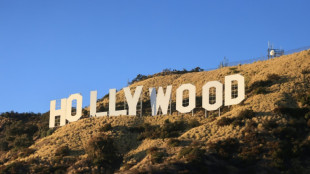
-
 First day of jury selection wraps in Sean Combs sex crimes trial
First day of jury selection wraps in Sean Combs sex crimes trial
-
Dominican Republic reports sharp rise in Haitian migrant deportations
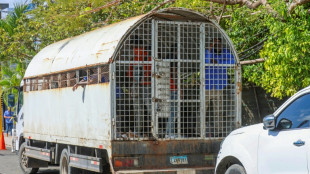

California downpours won't fix decades of drought: scientists
Near-record rainfall has battered California for weeks, sparking floods and landslides as the state struggles to cope with so much water.
But scientists say even this much precipitation won't reverse the western US state's decades-long drought.
A parade of atmospheric rivers -- massive flows of moisture dragged through the skies from the oceans -- has unleashed staggering volumes of rain and snow since December.
San Francisco got more rain in the last two weeks than it has done in any similar period for 150 years, while the Sierra Nevada mountains have been buried in as much as 33 feet (10.5 meters) of snow.
Peter Gleick, co-founder of the Pacific Institute in Oakland, a research organization that specializes in water issues, says it's difficult to quantify exactly how much water has fallen from the sky.
"But we're definitely talking about trillions of gallons (liters)," he told AFP.
"There's no doubt that the water we're getting now is a great help in eliminating the drought... But it is too soon to say that the drought is over."
"2023 could be a wetter year than normal," he said, but we'll have to wait until the end of winter to know for sure.
The western United States is in its 23rd year of drought, with major rivers and reservoirs at a fraction of capacity.
California's largest reservoir, Lake Shashta, is only 42 percent full, official data shows, even after all this rain.
The monster snowpack in the Sierra Nevada mountains -- it is currently twice what it normally is in January -- is most helpful, because this provides the gradual run-off that drip-feeds reservoirs in drier months.
- Aquifers in deficit -
Beyond its reservoirs and snow reserves, the state faces a much deeper-seated problem with its depleted groundwater, says Nicholas Pinter, a geologist from University of California, Davis.
About half of measured wells in California have seen their water levels decline over the past 20 years, according to a report from the California Natural Resources Agency released in October.
And the torrents of rain that have fallen are not all that effective at recharging them -- the soil became saturated quickly, so instead of being absorbed, subsequent downpours just ran off.
"Groundwater is like our retirement account. It's slow to go in and we have to withdraw it very, very carefully," says Pinter.
"Only, a lot of California water users draw on that retirement account like if it was the savings for tomorrow."
California's vast agricultural sector -- which supplies a swathe of America's supermarkets -- is a heavy user of this underground water.
That intense need -- coupled with big cities like Los Angeles that have nowhere near enough of their own water to support their populations -- means almost no matter how much it rains, it will not be enough.
"We will never end the discussion of drought in California because drought in California is largely driven by water demand," says Pinter.
- Climate change -
Human-caused climate change is already making itself felt, with average global temperatures up 1.2C since pre-industrial times.
That contributes to longer term trends like the drought, as well as to the increasing ferocity of winter storms like those that are whipping the western US coast now.
Adapting to the climate that we have altered is going to be key, says Gleick.
That includes learning how to retain the water when it falls as rain, to tide us through the hotter, drier summers.
"California built levees to protect communities from flooding, but they prevent the aquifers from recharging," he said.
"Every major river would benefit from widening the floodplains, by moving the levees back from the river and letting the rivers flood more.
"Instead of thinking we can control all floods, we have to learn to live with them."
Crucially, that means not assuming we can just go back to the way things were before a disaster struck.
"When communities are hit by repeated flooding, we should not rebuild in the same place," he said.
L.Mason--AMWN